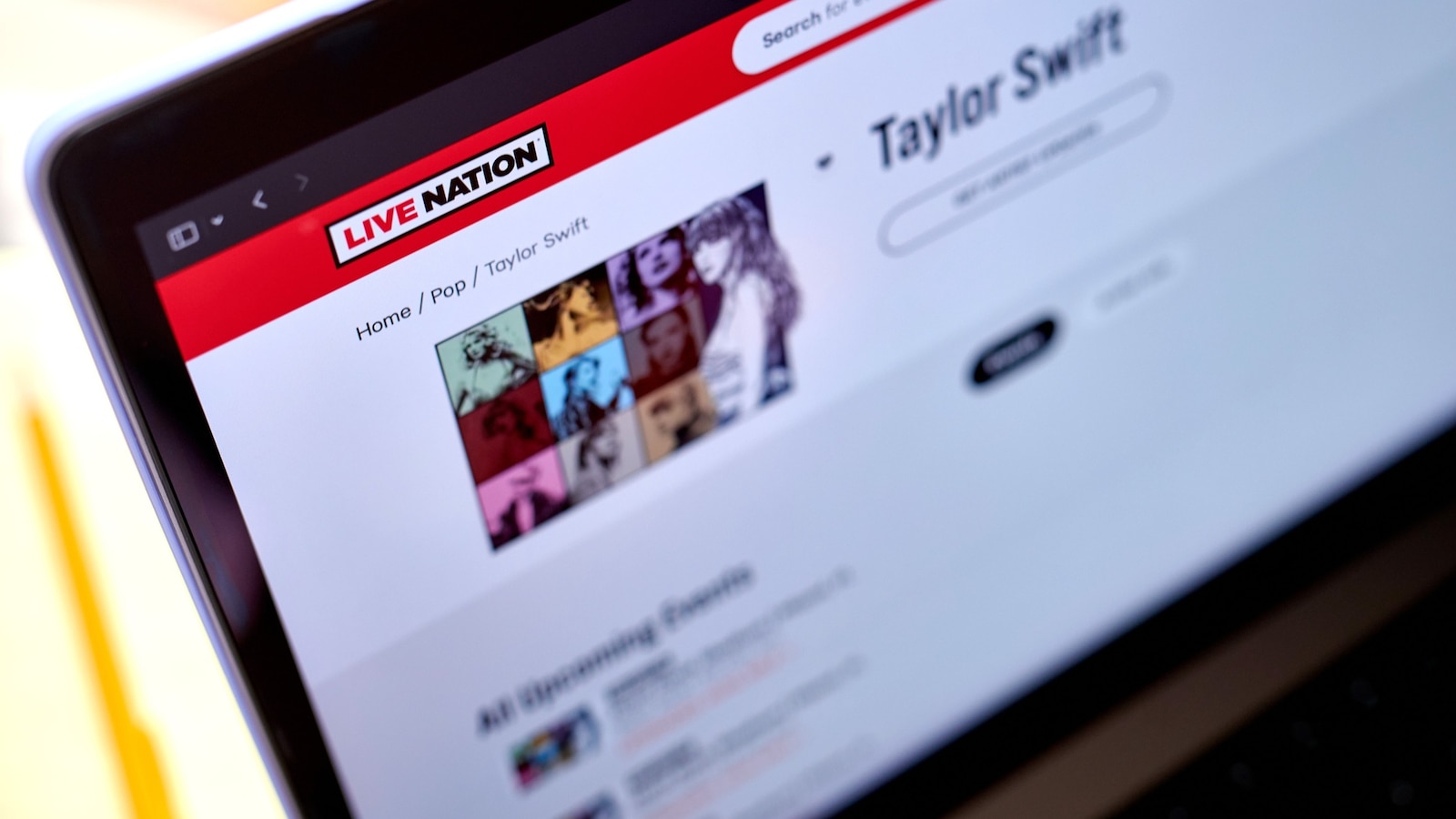The Justice Department and 30 states filed a major antitrust lawsuit Thursday seeking the breakup of Ticketmaster owner Live Nation Entertainment over what they allege is the company’s unlawful dominance over the concert ticket sales industry.
The lawsuit, filed in federal court in the Southern District of New York, accuses the company of creating a monopoly over the live entertainment market that has harmed music fans, artists and promoters around the United States through higher prices and frustrating consumer experiences.
“The result is that fans pay more in fees, artists have fewer opportunities to play concerts, smaller promoters get squeezed out, and venues have fewer real choices for ticketing services,” Attorney General Merrick Garland said in a statement announcing the lawsuit. “It is time to break up Live Nation.”
“For too long, Live Nation and Ticketmaster have unfairly and illegally run the world of live events, abusing their dominance to overcharge fans, bully venues, and limit artists,” New York Attorney General Letitia James said in a statement. “When companies like Live Nation control every aspect of an event, it leads to bad blood — concertgoers and sports fans suffer and are forced to pay more. Everybody agrees, Live Nation and Ticketmaster are the problem and it’s time for a new era. Today, we are taking this important action to protect consumers and force big companies to stop abusing their influence and get in formation.”
The sweeping lawsuit is a product of a more than two-year-long investigation into the company that has come under growing public scrutiny since late 2022, following a fiasco over presales for Taylor Swift’s Eras Tour.
Ticketmaster, which controls more than 70% of the market for ticketing and live events, crashed during the first day of sales, leaving millions of fans out of luck or seeking higher-priced tickets on the secondary market.
The Justice Department’s lawsuit accuses LiveNation of seeking to lock out competitors to protect what the company dubs its “flywheel,” described in court documents as “a self-reinforcing business model that captures fees and revenue from concert fans and sponsorship, uses that revenue to lock up artists to exclusive promotion deals, and then uses its powerful cache of live content to sign venues into long-term exclusive ticketing deals, thereby starting the cycle all over again.”
Live Nation did not immediately respond to ABC News’ request for comment on the lawsuit, though its president, Joe Berchtold, has otherwise defended the company’s business practices — including during a contentious appearance before Congress early last year.
Among the practices singled out by the DOJ are allegations Live Nation exploited its relationship with the company Oak View Group that the lawsuit says describes itself as a “hammer” for Live Nation and has avoided bidding against the company for exclusive agreements with artists and major venues.
The company, according to the Justice Department, also allegedly carried out a pattern of threatening potential competitors seeking to enter the concert promotions market and creating a climate where venue owners would fear entering into contracts with Live Nation-Ticketmaster’s rivals.
Live Nation-Ticketmaster is also accused of using lengthy exclusive contracts with venues that the lawsuit claims prevent them from switching to better or cheaper ticketing systems, and, in certain instances, allegedly blocked venues from even being able to use multiple ticketers for events.
Live Nation was already under a consent decree with the Justice Department after it approved its merger with Ticketmaster during the Obama administration in 2010 — under conditions that included prohibiting the company from threatening concert venues that opted to use competing ticket firms. That decree was extended in 2019 after the department found the company violated its conditions.
The lawsuit is the latest in a series of aggressive antitrust efforts by the Biden administration, which has brought similar enforcement efforts challenging companies like Apple, Google and Amazon over what it alleges are clear anti-competitive practices that have served to harm American consumers.
This is a developing story. Please check back for updates.

